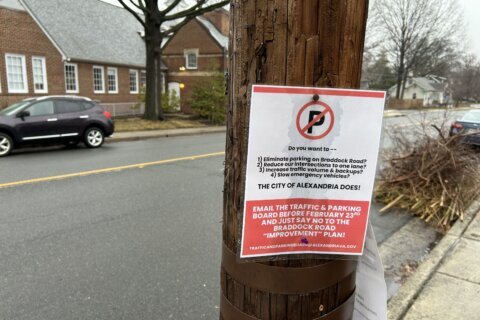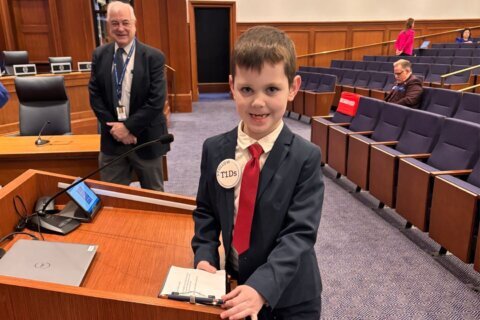More and more states around the country are legalizing sports betting, with visions of millions of dollars pouring into state and local government coffers. That’s especially now that revenues have slowed because of the pandemic and many local governments are staring at shortfalls.
Betting has been legalized in D.C.; voters in Maryland are in the process of deciding the question, and gaming companies are putting in their applications in Virginia.
But will it work? And how? And for whom?
This week, WTOP’s series “Betting on the Future: A look at sports betting in the DMV” is assessing the state of gambling in each area jurisdiction.
Virginia is moving quickly to launch sports betting throughout the commonwealth, with applications for mobile betting licenses flowing into the Virginia Lottery ahead of the Oct. 31 deadline.
The approach being taken in Virginia is in stark contrast with the District’s approach, and the gaming industry is far more excited about it.
“We understand that the black market has existed for centuries, right?” said Prince William County state Sen. Jeremy McPike, who sponsored the legislation that ultimately became law earlier this year. “Billions of dollars are exported overseas right now because people are still going to place bets, or [use] bookies in different cities and neighborhoods.”
D.C. will allow license holders to offer mobile apps that only work in the vicinity of their establishment — for instance, the app that William Hill will introduce will only work at Capital One Arena. That’s to limit competition with the DC Lottery’s Gambet app.
“We wanted to have a competitive process,” said McPike.
That decision stemmed from a Joint Legislative Audit Commission report, which presented a variety of gaming options to lawmakers and explored everything from the impact of a casino in Northern Virginia (which is not permitted right now) to the amount of money different tax rates would generate for the state.
In the end, the mobile-only sports betting option was approved by lawmakers and signed by the governor, though a clause allows future casinos in parts of the commonwealth to get in on the action too. Those casinos have been approved in Richmond, Danville, Portsmouth, Norfolk and Bristol.
There’s also a clause allowing a physical sports book too, but it has to be owned by a major league professional sports team that plays its games in Virginia (commonly considered an attempt to lure Dan Snyder to build the Washington Football Team’s new stadium in the commonwealth).
WTOP SPECIAL SERIES: BETTING ON THE FUTURE
- Betting on the Future: Maryland makes plans for a windfall
- Betting on the Future: A question of competition in DC
- Betting on the Future: Going mobile in Virginia
- Betting on the Future: Where does all the money go?
- Betting on the Future: Ted Leonsis on bringing sports betting out of the shadows
A 15% cut
Under the legislation enacted, the state will get 15% of all gross betting revenue, and gamblers will not be allowed to bet on college athletic events involving schools located in Virginia.
When the application period closes at the end of the month, the Virginia Lottery will conduct a 90-day review assessing the applicants. It’s expected that about a dozen different companies will be granted licenses sometime in mid-January, which compared to some states is on the small end of things.
States such as Indiana, Colorado and New Jersey allow dozens of mobile gaming operators, as does Tennessee, which is the only other state aside from Virginia to begin sports betting strictly through mobile apps.
It’s likely that any company granted a license will be able to launch their apps in the state quickly after that happens. And gaming analysts predict a big infusion of cash for the commonwealth when it does.
“I don’t see why they wouldn’t work out to be similar on a per-capita basis to a Pennsylvania, an Indiana, something like that,” said Chris Grove, with Eilers and Krejcik Gaming, a research and consulting firm. Since July, Pennsylvania has generated nearly $12 million in tax revenue from sports betting, and most of it has been through mobile apps.
“Both Pennsylvania and Indiana are moving toward markets that are going to be worth hundreds of millions of dollars annually, and tens of millions of dollars to the state,” said Grove. “There’s no good reason why Virginia isn’t in a similar range and [won’t be] on a per-capita basis performing similarly to those states as its market starts to ramp up.”








